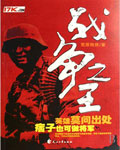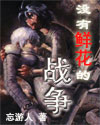战争与和平(下)-第20部分
按键盘上方向键 ← 或 → 可快速上下翻页,按键盘上的 Enter 键可回到本书目录页,按键盘上方向键 ↑ 可回到本页顶部!
————未阅读完?加入书签已便下次继续阅读!
Restoring the first condition that was omitted; the condition of time; we perceive that no single command can be carried out apart from preceding commands that have made the execution of the last command possible。
Never is a single command given quite independently and arbitrarily; nor does it cover a whole series of events。 Every command is the sequel to some other; and it never relates to a whole course of events; but only to one moment in those events。
When we say; for instance; that Napoleon commanded the army to go to fight; we sum up in one single expression a series of consecutive commands; depending one upon another。 Napoleon could not command a campaign against Russia; and never did command it。 He commanded one day certain papers to be written to Vienna; to Berlin; and to Petersburg; next day certain decrees and instructions to the army; the fleet; and the commissariat; and so on and so on—millions of separate commands; making up a whole series of commands; corresponding to a series of events leading the French soldiers to Russia。
Napoleon was giving commands all through his reign for an expedition to England。 On no one of his undertakings did he waste so much time and so much effort; and yet not once during his reign was an attempt made to carry out his design。 Yet he made an expedition against Russia; with which; according to his repeatedly expressed conviction; it was to his advantage to be in alliance; and this is due to the fact that his commands in the first case did not; and in the second did; correspond with the course of events。
In order that a command should certainly be carried out; it is necessary that the man should give a command that can be carried out。 To know what can and what cannot be carried out is impossible; not only in the case of Napoleon’s campaign against Russia; in which millions took part; but even in the case of the simplest event; since millions of obstacles may always arise to prevent its being carried out。 Every command that is carried out is always one out of a mass of commands that are not carried out。 All the impossible commands are inconsistent with the course of events and are not carried out。 Only those which are possible are connected with consecutive series of commands; consistent with series of events; and they are carried out。
Our false conception that the command that precedes an event is the cause of an event is due to the fact that when the event has taken place and those few out of thousands of commands; which happen to be consistent with the course of events; are carried out; we forget those which were not; because they could not be carried out。 Apart from that; the chief source of our error arises from the fact that in the historical account a whole series of innumerable; various; and most minute events; as; for instance; all that led the French soldiers to Russia; are generalised into a single event; in accordance with the result produced by that series of events; and by a corresponding generalisation a whole series of commands too is summed up into a single expression of will。
We say: Napoleon chose to invade Russia and he did so。 In reality we never find in all Napoleon’s doings anything like an expression of that design: what we find is a series of commands or expressions of his will of the most various and undefined tendency。 Out of many series of innumerable commands of Napoleon not carried out; one series of commands for the campaign of 1812 was carried out; not from any essential difference between the commands carried out and those not carried out; but simply because the former coincided with the course of events that led the French soldiers into Russia; just as in stencil…work one figure or another is sketched; not because the colours are laid on this side or in that way; but because on the figure cut out in stencil; colours are laid on all sides。
So that examining in time the relation of commands to events; we find that the command can never in any case be the cause of the event; but that a certain definite dependence exists between them。 To understand of what this dependence consists; it is essential to restore the other circumstance lost sight of; a condition accompanying any command issuing not from the Deity; but from man。 That circumstance is that the man giving the command is himself taking part in the event。
That relation of the commanding person to those he commands is indeed precisely what is called power。 That relation may be analysed as follows。
For common action; men always unite in certain combinations; in which; in spite of the difference of the objects aimed at by common action; the relation between the men taking a part in the action always remains the same。
Uniting in these combinations; men always stand in such a relation to one another that the largest number of men take a greater direct share; and a smaller number of men a less direct share in the combined action for which they are united。 Of all such combinations in which men are organised for the performance of common action; one of the most striking and definite examples is the army。
Every army is composed of members of lower military standing—the private soldiers; who are always the largest proportion of the whole; of members of a slightly higher military standing—corporals and non…commissioned officers; who are fewer in number than the privates; of still higher officers; whose numbers are even less; and so on; up to the chief military command of all; which is concentrated in one person。
The military organisation may be with perfect accuracy compared to the figure of a cone; the base of which; with the largest diameter; consists of privates; the next higher and smaller plane; of the lower officers; and so on up to the apex of the cone; which will be the commander…in…chief。
The soldiers; who are the largest number; form the lowest plane and the base of the cone。 The soldier himself does the stabbing and hacking; and burning and pillaging; and always receives commands to perform these acts from the persons in the plane next above。 He himself never gives a command。 The non…commissioned officer (these are fewer in number) more rarely performs the immediate act than the soldier; but he gives commands。 The officer next above him still more rarely acts directly himself; and still more frequently commands。 The general does nothing but command the army; and hardly ever makes use of a weapon。 The commander…in…chief never takes direct part in the action itself; and simply makes general arrangements as to the movements of the masses。 A similar relation exists in every combination of persons for common action—in agriculture; commerce; and in every department of activity。
And so without artificially analysing all the converging planes of the cone and ranks of the army or classes or ranks of any department whatever; or public undertaking; from lower to higher; a law comes into existence; by which men always combine together for the performance of common action in such relation that the more directly they take part in the action; the less they command; and the greater their numbers; and the less direct the part they take in the common action; the more they command; and the fewer they are in number; passing in that way from the lower strata up to a single man at the top; who takes least direct share in the action; and devotes his energy more than all the rest to giving commands。
This is the relation of persons in command to those whom they command; and it constitutes the essence of the conception of what is called power。
Restoring the conditions of time under which all events take place; we found that a command is carried out only when it relates to a corresponding course of events。 Restoring the essential condition of connection between the persons commanding and fulfilling the commands; we have found that by their very nature the persons commanding take the smallest part in the action itself; and their energy is exclusively directed to commanding。
Chapter 7
WHEN SOME EVENT takes place; men express their opinions and desires in regard to the event; and as the event proceeds from the combined action of many men; some one of the opinions or desires expressed is certain to be at least approximately fulfilled。 When one of the opinions expressed is fulfilled; that opinion is connected with the event as the command preceding it。
Men are dragging a log。 Every man expresses his opinion as to how and where to drag it。 The men drag the log off; and it turns out that it has been done just as one of them advised。 He gave the command then。 This is commanding and power in its primitive aspect。
The man who did most work with his arms could think least what he was doing; reflect least what might come of the common action; and so command least。 The man who commanded most could obviously; from his greater verbal activity; act less vigorously with his arms。 In a larger assembly of men; combining their energies to one end; the class of those persons who take the less direct share in the common work the more their energy is turned to command; is still more sharply defined。
When a man acts alone; he always carries within him a certain series of considerations; that have; as he supposes; directed his past conduct; and that serve to justify to him his present action; and to lead him to make projects for his future activity。
Assemblies of men act in the same way; only leaving to those who do not take direct part in the action to invent considerations; justifications; and projects concerning their combined activity。
For causes; known or unknown to us; the French begin to chop and hack at each other。 And to match the event; it is accompanied by its justification in the expressed wills of certain men; who declare it essential for the good of France; for the cause of freedom; of equality。 Men cease slaughtering one another; and that event is accompanied by the justification of the necessity of centralisation of power; of resistance to Europe; and so on。 Men march from west to east; killing their fellow…creatures; and this event is accompanied by phrases about the glory of France; the baseness of England; and so on。 History teaches us that those justifications for the event are devoid of all common…sense; that they







